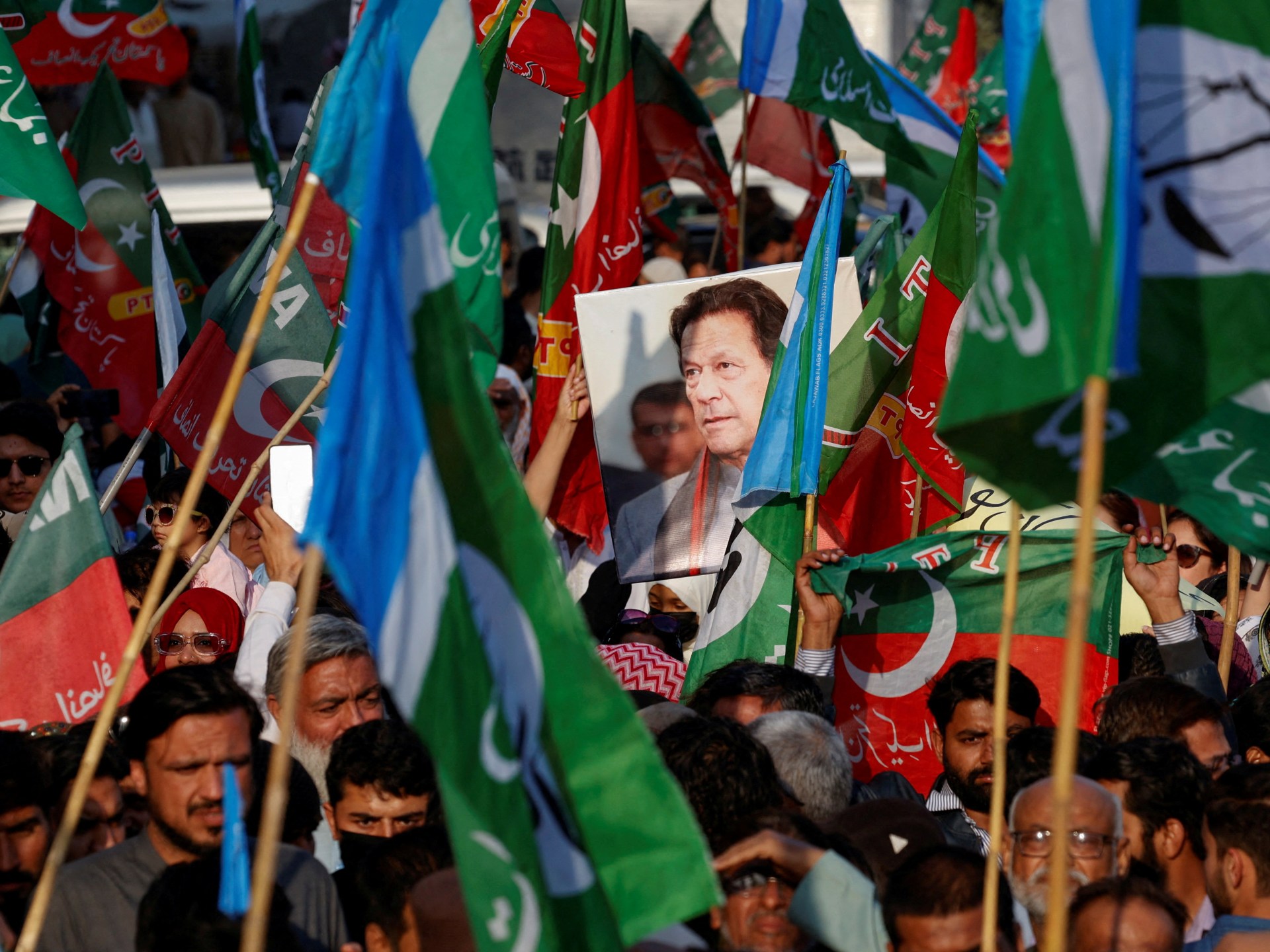Supporters of Imran Khan raise his picture and Pakistani flags in their protests on February 10, 2023 in Karachi, demanding fair results of the elections (Reuters)
A report published by the British newspaper "Financial Times" said that the success of the loyalists of the Pakistan Tehreek-e-Insaf party, led by imprisoned former Prime Minister Imran Khan, surprised other political parties, dealt a historic blow to the political influence of the army and threatened further instability in the country.
The report quoted observers as saying that the emergence of the Tehreek-e-Insaf party as the largest party on Thursday represents a rare rejection of the powerful military’s long-standing “manipulation” of elections in Pakistan, with voters retreating from increasingly public attempts to crush Khan’s party and prevent him from returning to office.
A crucial date for negotiations with the IMF is approaching
The resulting power vacuum will leave the country less able to govern as it approaches a crucial deadline for a new International Monetary Fund rescue plan, the report added.
Elizabeth Threlkeld, a senior fellow at the Stimson Center for Research in Washington, was quoted as saying, "It will likely take weeks to resolve the repercussions of these elections... with time running out for Pakistan to return to negotiations with the International Monetary Fund."
Analysts said, according to the report, that they expected the military to continue to push for the preferred outcome, with Khan's opponents quickly starting coalition talks.
The League and the People's Party
The Pakistan Muslim League, composed of former Prime Minister Nawaz Sharif, which won 75 seats out of a total of 265 seats in Parliament, announced that it would form a government.
Nawaz Sharif's party began negotiations with the Pakistan People's Party led by Bilawal Bhutto Zardari, the son of slain Prime Minister Benazir Bhutto, to revive the ruling coalition that served briefly after Khan's ouster as prime minister.
Analysts said that Sharif and Bhutto Zardari appear to have the best chance of forming a coalition government. Sharif, in particular, benefited before the elections from multiple judicial decisions that overturned a lifetime ban on him holding office after he was convicted of corruption in 2018.
An attempt to stem the populist tide
Khurram Hussain, a Karachi-based columnist, said what he sees is Pakistan's combined power structure, not just the army but the judiciary and all major political parties, trying to stem the populist tide represented by the Tehreek-e-Insaf.
The Tehreek-e-Insaf party played down the possibility of forming a coalition itself, vowing instead to overturn the disputed results in court and prove its majority. This party had won 101 seats.
The party claimed it had evidence of widespread voter fraud that robbed it of about 70 additional seats, with the counting process marred by delays, mobile network outages and other alleged irregularities, and launched legal challenges and urged protests outside counting centers, while the United States and the European Union called for... To conduct investigations into the alleged interference.
Getting Khan out of prison is a priority for his party
One of PTI's priorities will be to get its leader, whose personal charisma is the party's biggest winner, out of prison.
Lawyers have said they expect these cases to be thrown out in higher courts, but the party claims Khan faces 200 more charges, making a quick release seem unlikely.
The report said that Pakistan, at least, is in a somewhat unstable situation, and is facing a very serious economic crisis, as the inflation rate is about 30%, and foreign reserves are declining, and it needs quick solutions, and therefore a stable and strong government that can go to a fund. International criticism, negotiating with it, and implementing various economic reforms that it will undoubtedly demand.
The country will be at risk of default if it fails to reach an agreement with the International Monetary Fund.
Source: Financial Times

